Dear Readers:
Season’s greetings and best wishes for a loving, healthy, and meaningful 2016. With the rush of the holidays upon us all, we decided to forego a full-length blog post this month. Instead, here are a couple of poems we hope you’ll have time to read and share. The poems are inspired by our experiences in Cuba. More specifically, we reflect on the themes of leaving and loss that are still a constant echo in many lives of the Cuban Diaspora as well as Cubans on the island.
Abrazos, Ruth and Richard
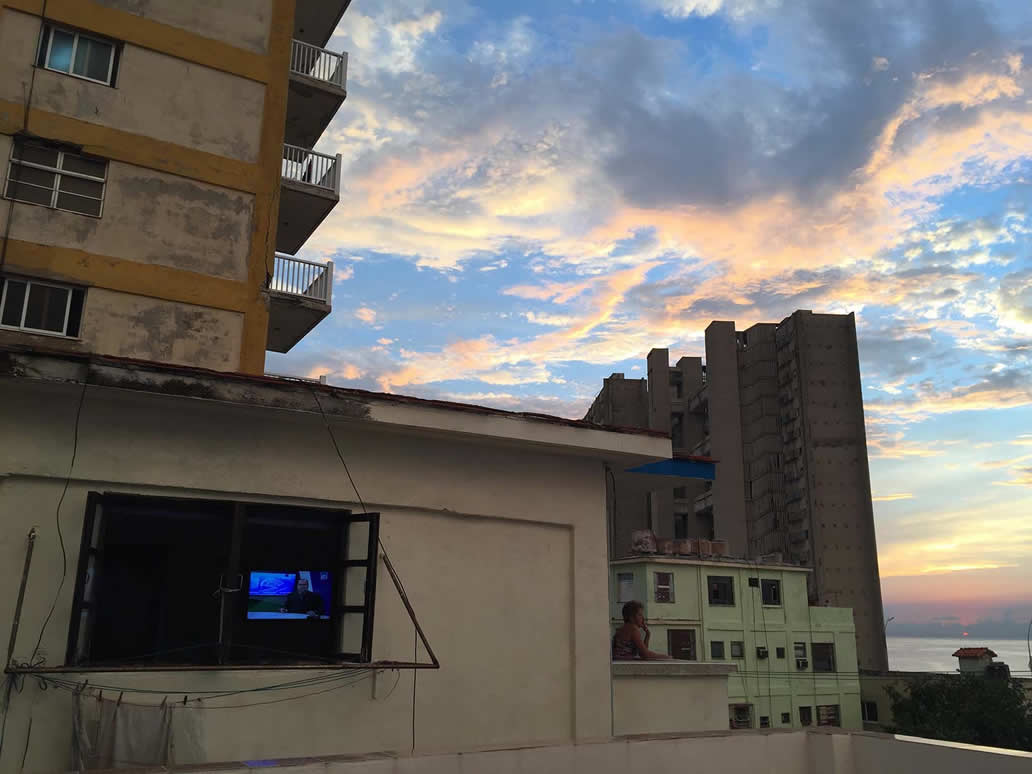
Sunset (Ruth Behar)
Saying Goodbye to La Habana in May
Ruth Behar
There’s always that last day in La Habana.
When I want to fix the city in my memory.
I want to take another walk on the Malecón.
I want to feel the sea wetting my eyelids.
I want to run after the little girl who walks on the seawall
clasping her father’s hand, that little girl who was me, long ago.
I want to hear the street musician with his guitar
singing Stevie Wonder’s “I Just Called to Say I Love You.”
And I want to hear myself sing along with him, I who never sing.
There’s always that last day in La Habana.
When I want to sit in a rocking chair and listen to the rain
pouring despondently from the sky, as if the world were about to end.
I want to watch my neighbor Delia caress the potatoes she’s thankful for,
the red earth of the island coating her fingers with love.
I want to go searching for eggs with my taxi driver, who also needed some,
both of us standing in line for almost an hour at El Ten Cent on 23 and 10,
each emerging with thirty eggs, happy, the best of friends.
There’s always that last day in La Habana.
When I want to lose myself in the hustle and the bustle on Calle Obispo.
A woman sweeps its cobblestones with a broom, and she wears
a flower in her hair, showing off, posing for pictures with the tourists.
I want to feel the palpitations of my heart after too much sweet coffee.
I want to eat an entire plate of ripe plantains, fried in lots of oil.
And not worry about a thing.
There’s always that last day in La Habana.
When I want to fill my suitcase with the orange blossoms of the flamboyant trees.
I want to believe Caro won’t ever die, that she’ll braid her beautiful hair
in the morning and unbraid it at night before she goes to sleep, forever and ever.
All she wants now is for her son, Paco, to return for a visit from Miami.
It’s been eight years, much too long, tell him to come soon, she tells me, soon.
There’s always that last day in La Habana.
On Calle 15, where I once lived, the men are finishing their domino game.
Around the corner, at the Patronato synagogue, our sacred Torah is safe.
We Jews have nothing to fear in Cuba.
Estévez has called from Matanzas to wish me a good trip and make me laugh.
Cristy, who’s never flown anywhere, has promised to recite a rosary, yet again,
so my plane won’t crash, and says, “Don’t worry, Ruti, you’ll get there just fine.”
There’s always that last day in La Habana.
When I want to still be there, but I know I am already far away.
Tomorrow, I will be struggling to find the words to explain how I feel.
This is my last day in La Habana and I have left, even before saying goodbye.
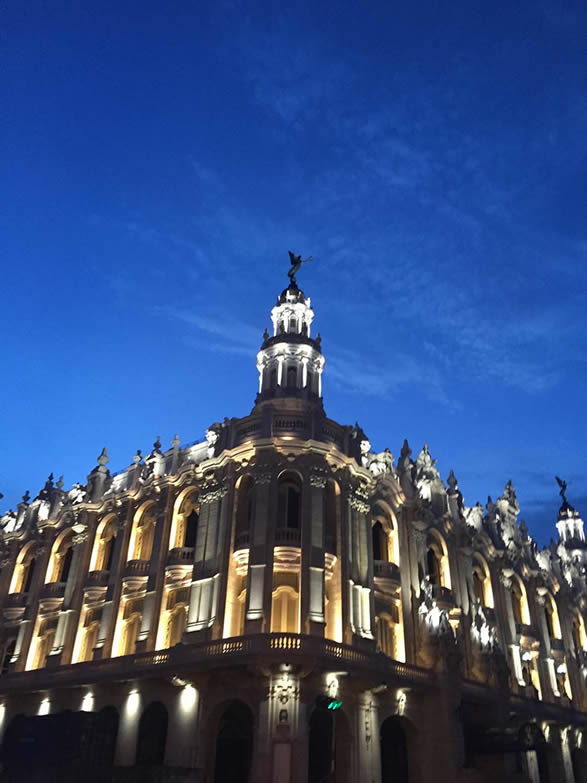
Angel (Ruth Behar)
Last Night in Havana
Richard Blanco
Drifting from above, the palms seem to sink
willingly into the saffron ground, all I can map
is the marble veins of rivers turning static,
the island coastline retreating like a hem
from the sargasso patches of Caribbean.
I think of you primo, huddled on the edge
of an Almendares curb last night,
El Greco shadow spilt across the street,
and over the tracks stapled to the weeds
below your open bedroom window.
Covered in cobwebs of humid wind,
we slapped at unreachable mosquitos
as Havana’s tenements collapsed around us,
enclosed us like the yellow of old books
or the stucco walls of a hollow chapel.
You confessed you live ankled in the sand
of a revolution, watching an unparted sea,
marking tides and learning currents
that will carry you through the straits
to my door, blistered and salted, but alive.
You said you want silence, you want to leave
the sweep of the labor trains in your window,
the creak of your father’s wheelchair in the hall
searching for a bottle of pills he will find empty,
and the slam of your eyelids forcing sleep.
The tires are ready, bound with piano wire,
the sail will be complete with the linen scraps
your mother will stitch together after midnights
when the neighbors are trying to fall asleep.
Last night in Havana, your face against your knees,
your words drowning with the lees in an empty bottle
of bootleg wine you clutched around the neck
and will keep to store fresh water.
from: City of a Hundred Fires (University of Pittsburgh Press, 1998)
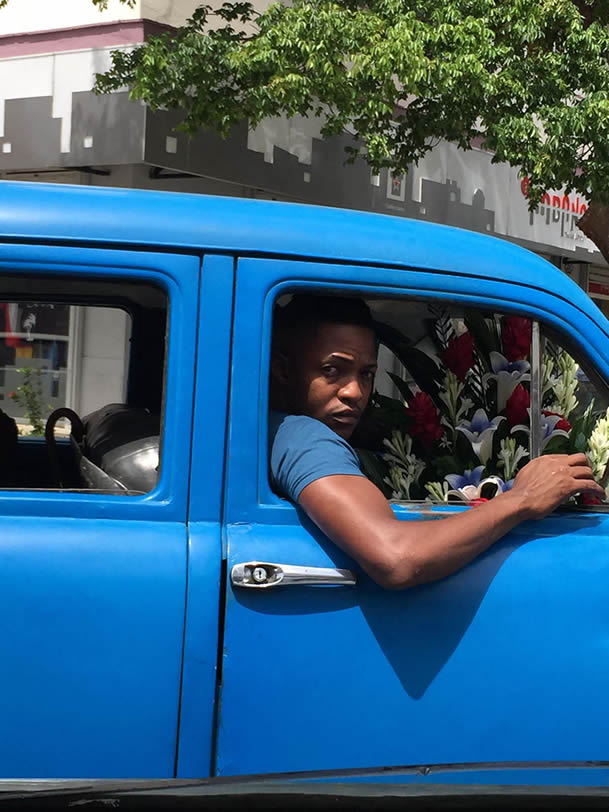
Man in a blue car (Ruth Behar)




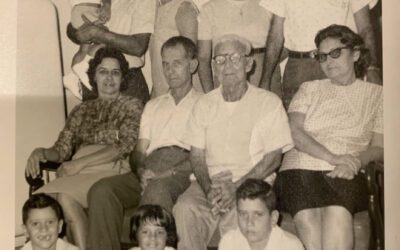
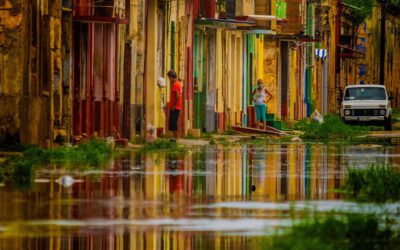
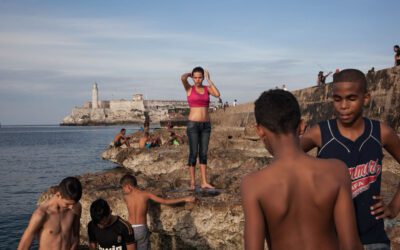
Poetry has the power of awakening reflections we have kept silent, feelings we’d held deep, protecting us from the response they would demand if acknowledge… in your words those thoughts and feelings have found healing expression, now exposed, I can dry a tear and smile. Gracias a ambos y los mejores deseos para un 2106 de salud, creatividad continua, satisfacciones y descubrimientos.
Con mi amistad, Alma Flor
It was extremely powerful to see the goodbyes of people as they were leaving Havana. “There’s always that last day in La Habana. When I want to still be there, but I know I’m already far away. Tomorrow, I will be struggling to find the words to explain how I feel. This is my last day in La Habana and I have left, even before saying goodbye.” I think by saying goodbye to something, a lot more memories are revealed. Poetry also has a way of expressing words in a safe place. I really enjoyed reading the person stories about such a unique place.